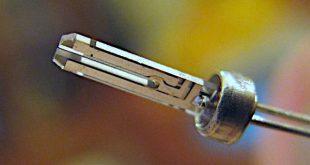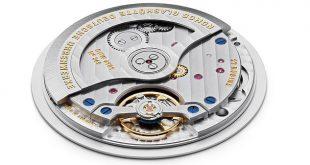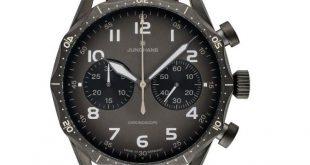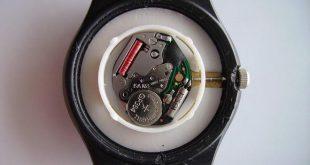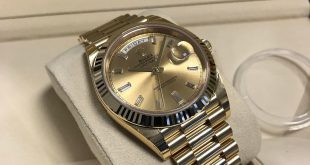« When the metal strap is too big » The new dream watch is delivered, your anticipation increases immeasurably, and after the initial euphoria, a small disappointment: the metal bracelet does not fit. The good news: you don’t need watchmaking skills to remove or add links on your own. Read on to find out how to make the operation a …
Read More »What is an oscillator?
« The great advantages of modern quartz watches » Although electric timepieces are out of the question for many mechanical enthusiasts, they reveal an immense technical fascination upon closer inspection. Above all, the heart of the clock, the oscillator, is a delicate marvel on the wrist. Read on to find out how the mechanism works and why quartz oscillators surpass …
Read More »The automatic watch is slow
« What does that mean? » From Tissot to Omega: watch owners of all price classes know the problem of an automatic watch ticking too slowly or too fast. Not adjusted for a few weeks, the time indicator runs several minutes behind the exact digital clock. Your watch is slowing down? Our magazine tells you which rate deviations are normal, …
Read More »Watch caliber make-or-buy decision
« Own production or external use in the watch industry » Make it yourself or have it made? Almost every technical discussion on the subject of mechanical watches ends in a discussion about manufacture calibers and bought-in movements. But what factors influence the make-or-buy decision of manufacturers? Is in-house manufacture superior in every case? We contrast the merits of both …
Read More »What are the most accurate watches in the industry?
« Luxury watches in precision dispute » In 729 million years, it will still run precisely to the second: The NPL-CsF2 atomic clock in London. Neither quartz watches nor mechanical timekeepers can match this precision. But which brands do you have to visit to find the most accurate mechanical watches? From Breitling to Zenith, our magazine shows you the most …
Read More »Selling watches seriously: who buys them?
New perspectives, fresh capital: Although the sale of a timepiece can be emotional, most watch collectors regularly opt for a parting of the ways that allows them to acquire new dream watches. Given the high value of luxury watches, seriousness and a fair price should be top priorities when selling. We explain below how this can be achieved with a …
Read More »DLC coating
« What does Diamond-like Carbon mean? » Eternal youth for the luxury watch: DLC coatings promise increased resistance and a smooth, pleasant surface in the long term. But how does the coating actually work? Today we explain the basics of the method, how it relates to the PVD process, and what advantages or disadvantages it brings. We’ll also show popular …
Read More »How does a quartz movement work
« Precise sand gear with crisis potential » Precise, efficient, and highly controversial, electric movements have caused heated discussions in the watch world and changed the industry like no other innovation of the 20th century. But how does a quartz movement actually work? We take a look behind the scenes of this ingenious microtechnology, explore its history and explain how …
Read More »Why the Roman four on watches is usually written with four dashes
«A short watch history» Roman numerals to mark the hour indices are very popular, especially on classic watch models. However, the Roman 4 on watches often causes irritation when only 4 dashes appear instead of the IV. We have looked into the matter and have investigated an interesting piece of watch history for our readers. Roman numerals stand for tradition …
Read More »When is a gold watch a “real gold watch”?
Gold – for thousands of years, this noble, shimmering metal has exerted an incomparable fascination on people. Coveted as jewelry and valued as an investment, it plays a special role in the watch industry. But if a watch shimmers gold, this does not mean that it is a “real” gold watch. We explain which variants there are for a gold …
Read More » Uhrinstinkt Magazine
Uhrinstinkt Magazine

